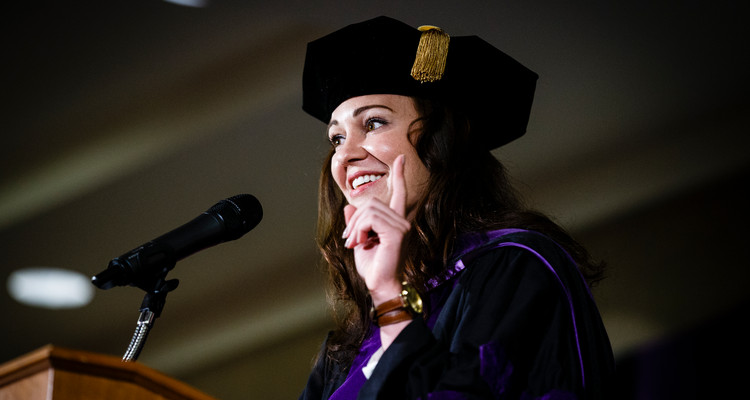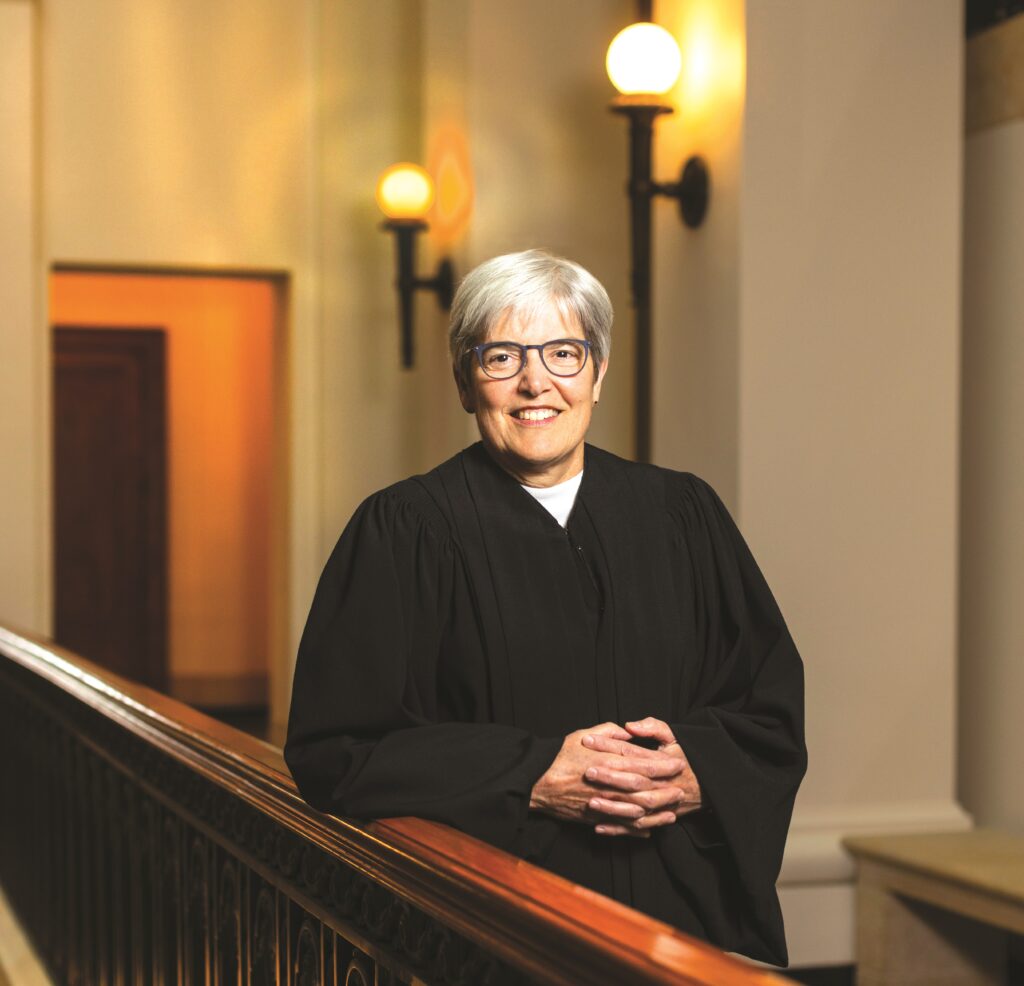Three weeks ago, to the day, I was on a day-hike in the foothills of the Himalayan Mountains about an hour outside Kathmandu. Suddenly, a prolonged sound of thunder turned the ground into ocean waves. I fell to my hands and knees. I could feel the earth rippling under my hands as I watched in horror while landslides took out the homes and village in the valley below.
An eerie moment of quiet assessment followed, and in that moment I knew something had shifted, transformed, not just the earth’s tectonic plates, or for the Nepalese people, but for me as well. I’m just not sure how yet.
Life is full of these turning points, grand shifts, and my journey from where you are sitting today over the last nine years is no exception.
Back in 2003 I chose UST School of Law in large part because of its beautiful mission statement focused on morality and social justice.
But I’m going to give you the cold, hard, honest truth here. I lost sight of that for a bit. I took work that appealed to my pocketbook rather than my conscience, and I found myself ripping apart at the seams. ...
You see, what I’ve learned since sitting in your seat, and what I’d like to impart to you today is this: Work is intimately connected with – indeed woven into the very fabric of – our identity. We need to find a way to weave together in harmony our values, inspirations and commitments with our work, career, tradecraft. I suggest we are all called to be “weavers” – uniting self and work through purpose. ...
My work today as a human rights officer in the State Department’s Bureau of Democracy, Human Rights, and Labor; Office of International Labor Affairs, allows me to use my UST Law education to work for something I believe in.
I have the honor to advocate that the voices and perspectives of the people in the world who have no power are taken into account when the United States makes foreign policy toward those with power.
I advocate for dignity and a voice for the millions who are victims of forced labor, human trafficking and exploitation through work: children who are made to be soldiers, teenage girls who are beaten and forced into prostitution, and textile workers deep in the corporate supply chain compelled to work in decrepit buildings for little or no pay.
This type of exploitation is a predictable outcome when, as the pope said in a recent speech, the human being is at the service of profits, disposable, to be used and discarded. This is an inversion of values. An unraveling of our social fabric. ...
In many of the world’s languages, the word “lawyer” translates to the word “advocate.” So be an advocate. Turn your career into a calling and be an instrument for your purpose. If you don’t know your purpose, make it your purpose to find your purpose, and in the meantime, let me give you a few ideas:
Advocate on behalf of our common humanity, dignity and for shared prosperity – not just for the few at the top, but for the many.
Advocate against injustice and inequality, and represent the little guy from time to time.
Advocate sometimes to alter the status quo of power dynamics – whether it’s a dictator or a political movement with a stake in preserving their power, a share- holder-profits model that incentivizes sweatshops and golden parachutes, or a tax and investment system that ensures the rich get richer and the middle class and social mobility fade into memory.
Whether you are a public defender, in-house counsel or even a government bureaucrat, you will no doubt fail on occasion in your advocacy, but when you succeed, you will bring the world a little closer to what we hope it will become. ...
I challenge you: Weave together your values, your inspirations and your commitments with your work, your career, your tradecraft. ...
Read more from St. Thomas Lawyer.







